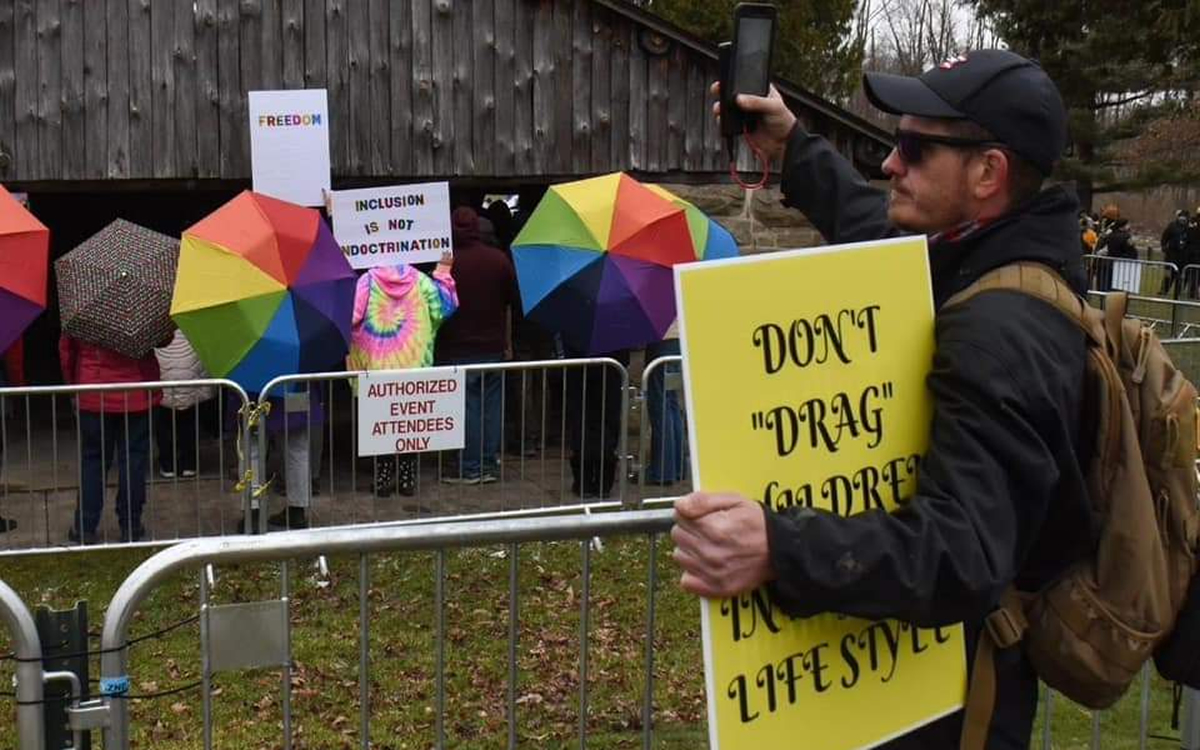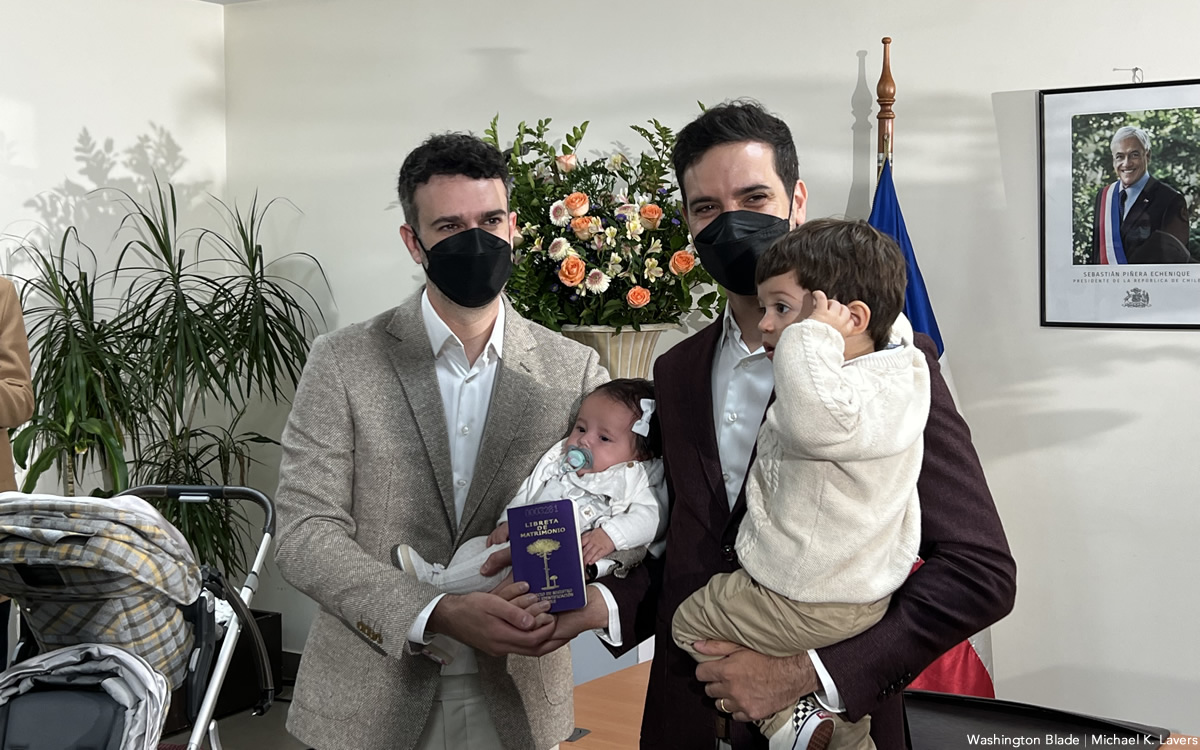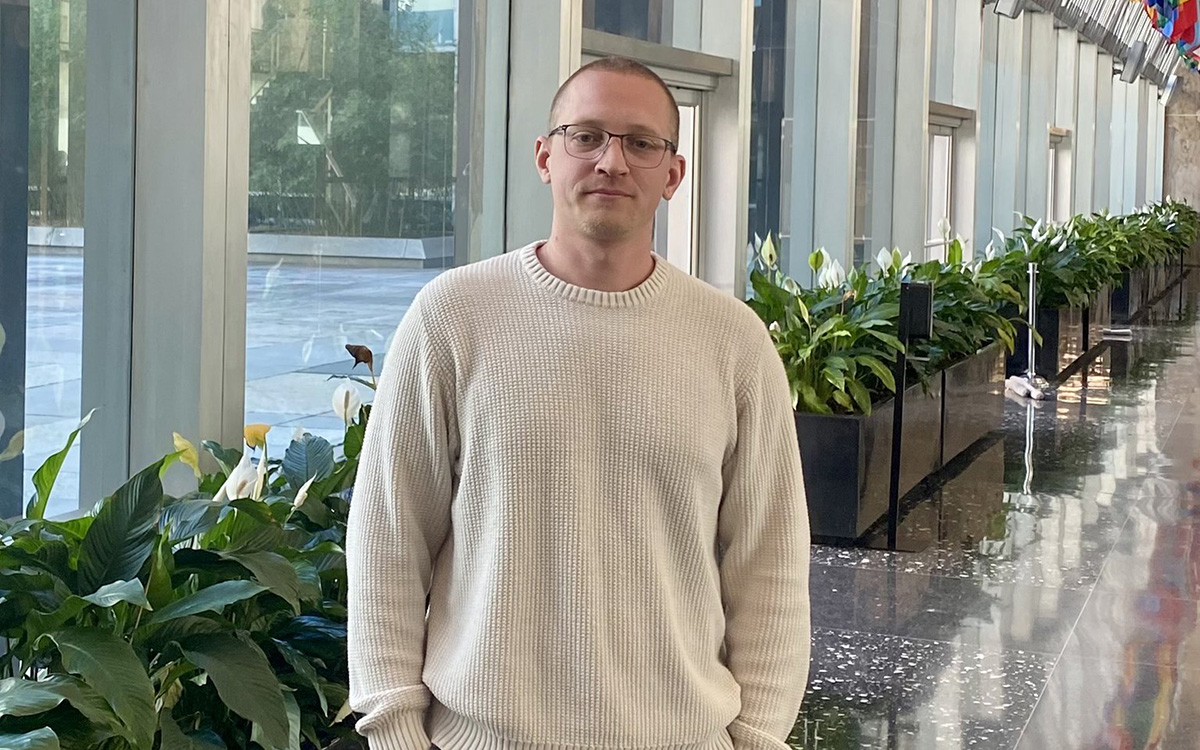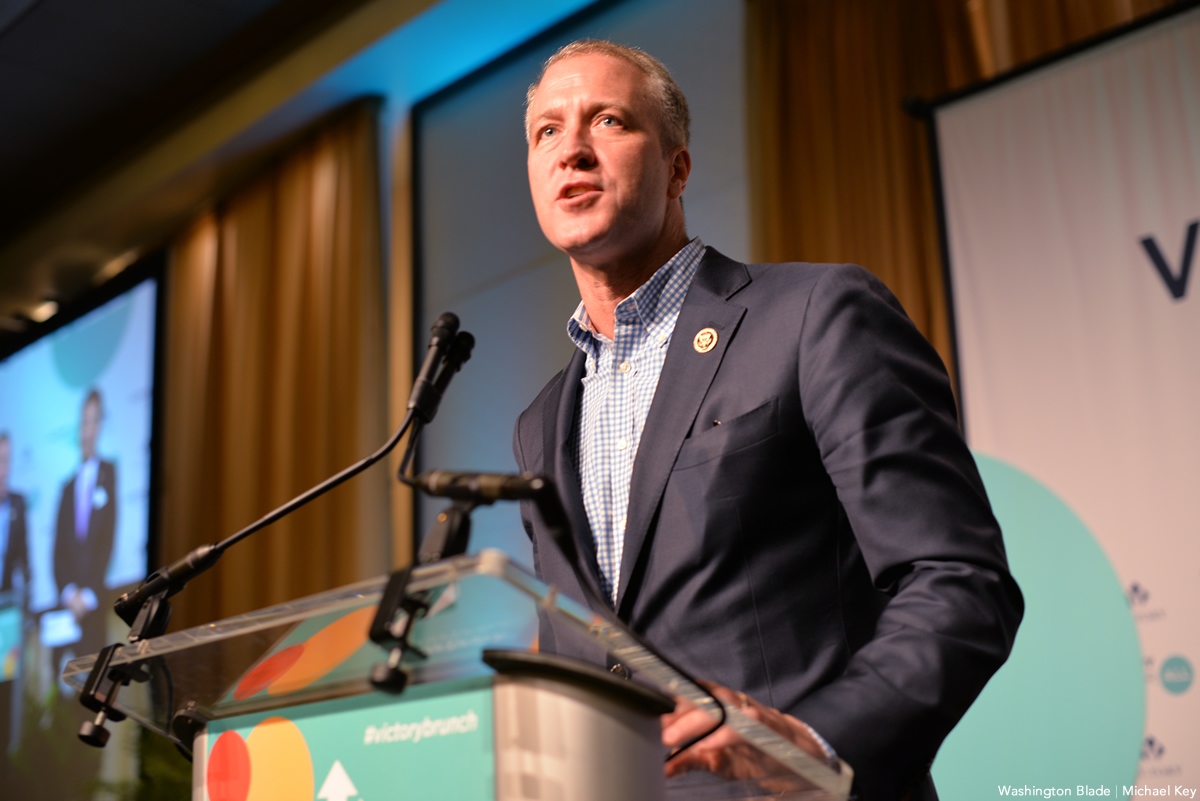State Department
State Department releases 2022 human rights report
Conversion therapy, treatment of intersex people documented

The State Department’s annual human rights report that was released on Monday details the prevalence of so-called conversion therapy and the treatment of intersex people around the world.
The report notes LGBTQ and intersex rights groups in Kenya have “reported an increase in so-called conversion therapy and ‘corrective rape’ practices, including forced marriages, exorcisms, physical violence, psychological violence, or detainment.” The report cites the Kenya National Commission on Human Rights that said “infants and children born with physical sex characteristics that did not align with either a typical male or female body were subjected to harmful medical practices for years in attempt to ‘normalize’ them.”
A landmark law that extended legal protections to intersex Kenyans took effect last July.
The report notes “many reports of conversion attempts conducted or recommended by evangelical and Catholic churches” in Brazil, even though the country has banned conversion therapy. It also cites the case of Magomed Askhabov, a man from the Russian republic of Dagestan who “demanded a criminal case be opened” against a rehabilitation center in the city of Khasavyurt in which he and other residents “were physically abused and subjected to forced prayer as part of their ‘treatment’ for homosexuality.”
“There were reports police conducted involuntary physical exams of transgender or intersex persons,” notes the report. “The Association of Russian-speaking Intersex reported that medical specialists often pressured intersex persons (or their parents if they were underage) into having so-called normalization surgery without providing accurate information about the procedure or what being intersex meant.”
The report notes Afghan culture “insists on compulsory heterosexuality, which forced LGBTQI+ individuals to acquiesce to life-altering decisions made by family members or society.” The report also refers to LGBTQ and intersex activists in the Philippines who criticized former President Rodrigo Duterte after he “mockingly” endorsed conversion therapy and joked he had “cured” himself of homosexuality.
The report indicates “social, cultural and religious intolerance” in Kiribati “led to recurrent attempts to ‘convert’ LGBTQI+ individuals informally through family, religious, medical, educational, or other community pressures.”
Hungarian law “prohibits transgender or intersex individuals from changing their assigned sex/gender at birth on legal and identification documents and there is therefore no mechanism for legal gender recognition.” The report also cites statistics from the Háttér Society, a Hungarian LGBTQ and intersex rights group, that indicate one out of 10 LGBTQ and intersex Hungarians have “gone through some form of ‘conversion therapy.'”
The report notes then-British Prime Minister Boris Johnson’s government in April 2022 announced plans to ban conversion therapy based on sexual orientation in England and Wales. Activists sharply criticized the exclusion of transgender people from the proposal, and the British government later cancelled an LGBTQ and intersex rights conference after advocacy groups announced a boycott.
‘Human rights are universal’
Congress requires the State Department to release a human rights report each year.
President Joe Biden last June signed a sweeping LGBTQ and intersex rights executive order. Secretary of State Antony Blinken at the beginning of this year’s report notes the mandate directed the State Department to “specifically include enhanced reporting on so-called conversion ‘therapy’ practices, which are forced or involuntary efforts to change a person’s sexual orientation, gender identity, or gender expression, as well as additional reporting on the performance of unnecessary surgeries on intersex persons.”
“Human rights are universal,” Blinken told reporters on Monday as he discussed the report. “They aren’t defined by any one country, philosophy, or region. They apply to everyone, everywhere.”
The Biden-Harris administration in 2021 released a memorandum that committed the U.S. to promoting LGBTQ and intersex rights abroad.
The State Department released the report hours before U.S. Ambassador to the U.N. Linda Thomas-Greenfield hosted a meeting at the United Nations that focused on the integration of LGBTQ and intersex rights into the U.N. Security Council’s work.
Lawmakers in Uganda on Tuesday approved a bill that would further criminalize LGBTQ and intersex people in the country. Consensual same-sex sexual relations remain criminalized in dozens of other countries around the world.
Activists in Ukraine with whom the Washington Blade has spoken since Russia launched its war against the country in February 2022 have said LGBTQ and intersex people who lived in Russia-controlled areas feared Russian soldiers would target them because of their sexual orientation or gender identity. The report’s release also coincides with Republican efforts to curtail LGBTQ rights in states across the U.S.

The report notes LGBTQ and intersex rights advances around the world in 2022.
Antigua and Barbuda, Barbados, St. Kitts and Nevis and Singapore decriminalized consensual same-sex sexual relations last year.
The report notes Chile’s marriage equality law took effect on March 10, 2022, but lists violence against LGBTQ and intersex people as one of the “significant human rights issues” in the country. Switzerland, Slovenia and Cuba also extended marriage rights to same-sex couples in 2022.

The report cites the case of Brenda Díaz, a trans Cuban woman with HIV who is serving a 14-year prison sentence because she participated in an anti-government protest in July 2021. The report also notes several LGBTQ and intersex journalists — including Nelson Álvarez Mairata and Jancel Moreno — left the country because of government harassment and threats.
The Cuban government also blocked the websites of Tremenda Nota, the Blade’s media partner on the island, and other independent news outlets.
The full report can be found here:
State Department
State Department releases annual human rights report
Antony Blinken reiterates criticism of Uganda’s Anti-Homosexuality Act

Secretary of State Antony Blinken on Monday once again reiterated his criticism of Uganda’s Anti-Homosexuality Act upon release of the State Department’s annual human rights report.
“This year’s report also captures human rights abuses against members of vulnerable communities,” he told reporters. “In Afghanistan, the Taliban have limited work opportunities for women, shuttered institutions found educating girls, and increasing floggings for women and men accused of, quote, ‘immoral behavior,’ end quote. Uganda passed a draconian and discriminatory Anti-Homosexuality Act, threatening LGBTQI+ individuals with life imprisonment, even death, simply for being with the person they loved.”
Ugandan President Yoweri Museveni last May signed the law, which contains a death penalty provision for “aggravated homosexuality.”
The U.S. subsequently imposed visa restrictions on Ugandan officials and removed the country from a program that allows sub-Saharan African countries to trade duty-free with the U.S. The World Bank Group also announced the suspension of new loans to Uganda.
Uganda’s Constitutional Court earlier this month refused to “nullify the Anti-Homosexuality Act in its totality.” More than a dozen Ugandan LGBTQ activists have appealed the ruling.
Clare Byarugaba of Chapter Four Uganda, a Ugandan LGBTQ rights group, on Monday met with National Security Council Chief-of-Staff Curtis Ried. Jay Gilliam, the senior LGBTQI+ coordinator for the U.S. Agency for International Development, in February traveled to Uganda and met with LGBTQ activists who discussed the Anti-Homosexuality Act’s impact.
“LGBTQI+ activists reported police arrested numerous individuals on the basis of their sexual orientation or gender identity and subjected many to forced anal exams, a medically discredited practice with no evidentiary value that was considered a form of cruel, inhuman, and degrading treatment and could amount to torture,” reads the human rights report.
The report, among other things, also notes Ugandan human rights activists “reported numerous instances of state and non-state actor violence and harassment against LGBTQI+ persons and noted authorities did not adequately investigate the cases.”
Report highlights anti-LGBTQ crackdowns in Ghana, Hungary, Russia
Ghanaian lawmakers on Feb. 28 approved the Promotion of Proper Human Sexual Rights and Ghanaian Family Values Bill. The country’s president, Nana Akufo-Addo, has said he will not sign the measure until the Ghanaian Supreme Court rules on whether it is constitutional or not.
The human rights report notes “laws criminalizing consensual same-sex sexual conduct between adults” and “crimes involving violence or threats of violence targeting lesbian, gay, bisexual, transgender, queer or intersex persons” are among the “significant human rights issues” in Ghana.
The report documents Hungarian Prime Minister Viktor Orbán and members of his right-wing Fidesz party’s continued rhetoric against “gender ideology.” It also notes Russia’s ongoing crackdown against LGBTQ people that includes reports of “state actors committed violence against LGBTQI+ individuals based on their sexual orientation or gender identity, particularly in Chechnya.”
The report specifically notes Russian President Vladimir Putin on July 24 signed a law that bans “legal gender recognition, medical interventions aimed at changing the sex of a person, and gender-affirming care.” It also points out Papua New Guinea is among the countries in which consensual same-sex sexual relations remain criminalized.

The Cook Islands and Mauritius in decriminalized homosexuality in 2023.
The report notes the Namibia Supreme Court last May ruled the country must recognize same-sex marriages legally performed outside the country. The report also highlights the Indian Supreme Court’s ruling against marriage equality that it issued last October. (It later announced it would consider an appeal of the decision.)
Congress requires the State Department to release a human rights report each year.
The Biden-Harris administration in 2021 released a memorandum that committed the U.S. to promoting LGBTQ+ and intersex rights abroad.
The full report can be read here.
State Department
Russian activist meets with US global LGBTQ, intersex rights envoy
Aleksander Voronov visited the State Department last week

A Russian activist last week met with the special U.S. envoy for the promotion of LGBTQ and intersex rights at the State Department.
Jessica Stern on March 29 posted to her X account a picture of Aleksandr Voronov of Coming Out, an LGBTQ advocacy group that was previously based in St. Petersburg.
“I was honored to host Coming Out activist Aleksandr Voronov at the State Department,” said Stern. “Russia’s transgender ban and designation of the so-called ‘LGBT movement’ as extremist undermines the human rights and fundamental freedoms of all Russians. We stand with all LGBTQI+ persons.”
I was honored to host @comingoutspb activist Aleksandr Voronov at the State Department. Russia’s transgender ban & designation of the so-called “LGBT movement” as extremist undermine the human rights and fundamental freedoms of all Russians. We stand with all LGBTQI+ persons.🏳️🌈 pic.twitter.com/4GpZGzBwoc
— Special Envoy Jessica Stern (@US_SE_LGBTQI) March 29, 2024
Voronov told the Washington Blade he “gave her an update on the situation with LGBTQ rights in Russia.” Voronov said Stern “was very supportive and unbelievably kind.”
The Kremlin over the last decade has cracked down on LGBTQ rights.
The Russian Supreme Court last November ruled the “international LGBT movement” is an extremist organization and banned it. The Moscow Times on March 31 reported authorities in Orenburg, a city near the country’s border with Kazakhstan that is roughly 900 miles south-southeast of Moscow, arrested a gay bar’s owner and charged him with “extremism.”
Voronov fled Russia and now lives in Lithuania.
“Most of the organizations and public activists, such as me and the organization I lead, were forced to leave the country, but continue working ‘in exile,'” Voronov told the Blade. “Most openly queer-places were closed during last months; but there are still lots of activists, organizations and of course ordinary LGBTQ individuals in Russia who are still there, and will be staying there. And we try to support them as much as we can.”
State Department
Sean Patrick Maloney confirmed as next OECD ambassador
Former N.Y. congressman lost to Mike Lawler in 2022

The U.S. Senate on Tuesday confirmed former New York Congressman Sean Patrick Maloney to become the next American ambassador to the Organization for Economic Cooperation and Development.
Maloney, the former chair of the Democratic Congressional Campaign Committee who was also former President Bill Clinton’s White House staff secretary, in 2012 became the first openly gay person elected to Congress from New York. Maloney in 2022 lost to now U.S. Rep. Mike Lawler (R-N.Y.) after the state redrew its congressional districts.
Biden last May nominated Maloney for the ambassadorship. The Senate approved it by a 63-31 vote margin.
“Thank you, all,” said Maloney in a short X post after the vote.
Michael Carpenter, the current U.S. ambassador to the OECD, is gay.
















